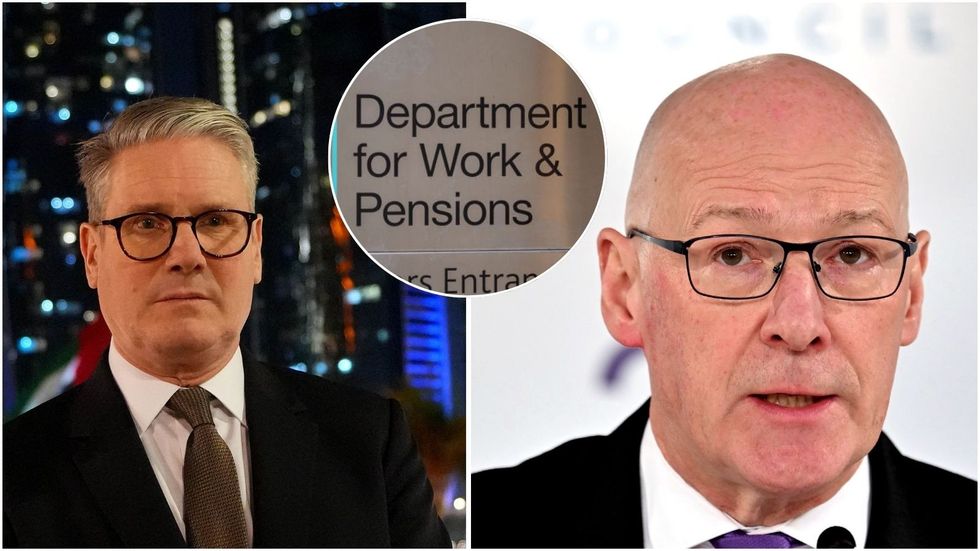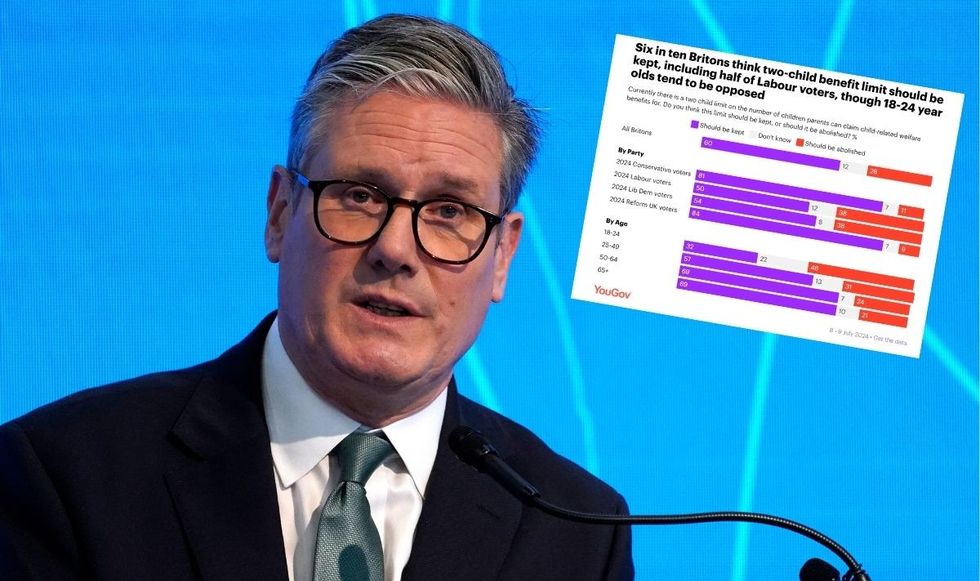The Department for Work and Pensions (DWP) is being urged to scrap the two-child benefit cap on payments, such as Universal Credit, after the Scottish Government’s pledge to end the policy last week.
Under the cap, households on Universal Credit or child tax credits do not receive any extra amounts on benefit support for their third or subsequent child born April 5, 2017. This policy was brought in by the Conservative Party in 2017 and has, so far, been kept by the Labour Party.
First Minister John Swinney has confirmed that Prime Minister Keir Starmer will “work constructively” with the Scottish Government to scrap the cap by 2026 but the Labour leader has claimed this move is not a “silver bullet” in addressing child poverty UK-wide.
During her draft Budget announcement to MSPs in Holyrood, Scotland’s Finance Secretary Shona Robison outlined the SNP-led devolved Government’s intention to axe the cap.
In recent years, responsibility for the administration of benefit payments has transitioned from the DWP in Westminster to policymakers in Edinburgh with the creation of Social Security Scotland.
Thanks to social security issues becoming a devolved matter, the Scottish Government has confirmed its intention to end the two-child benefit cap which remains in place across England and Wales.
Do you have a money story you’d like to share? Get in touch by emailing [email protected].

The Scottish Government is calling on Labour to end the DWP policy
GETTY / PA
According to Robison, ending the controversial policy will pull 15,000 children out of poverty and has called on Labour to back the SNP’s policy proposal. SNP are currently planning to give funding to affected households by 2026.
Robison explained: “My challenge to Labour is to work with us – join us in ending the cap in Scotland, give us the information that we need. But either way, let me be crystal clear, this Government is to end the two-child cap and in doing so will lift over 15,000 Scottish children out of poverty.”
Despite support from youth charities and campaigners, Social Justice Secretary Shirley-Anne Sommerville has stated “ending the cap” will cost Scotland around £50million.
Research conducted by the Child Poverty Action Group suggests that abolishing the DWP restriction on payments will see 300,000 British children taken out of poverty.
Alison Garnham, the group’s chief executive, said: “The Scottish Government has made the right decision, but Westminster must now step up and scrap the two-child limit UK-wide.
“There can be no justification now for Westminster dragging its feet and continuing to roll out poverty to more and more children through this policy from the austerity era.
“If the Prime Minister wants families to feel improvements in their living standards, the policy must be scrapped when the Government’s child poverty task force reports in spring.”
Maeve McGoldrick, the head of policy and communications for Crisis in Scotland, added: “Acting to mitigate the impact of the two-child cap on welfare support will reduce levels of child poverty and stop more people from forced into the trauma and indignity of homelessness.”
LATEST DEVELOPMENTS:

According to a poll from earlier this year, six in ten Britons think the two-child benefit limit should be kept
Getty/ YouGov
Pat McFadden MP, the Chancellor of the Duchy for Lancaster, previously said: “We all have a desire to reduce child poverty. I understand the desire absolutely. I also understand that money for this commitment has not been set aside.
“But there has been a request for data from the DWP, and like the Prime Minister, I would ensure that the UK Government gives the Scottish Government any data it needs for this.
McFadden noted it was the responsibility of Holyrood to “identify the money” to pay for this Budget promise and cited the UK Government’s child poverty task force as evidence of Labour commitment to the issue. Scotland’s First Minster has claimed the SNP have reserved £3million in infrastructure to meet its goals.
GB News has contacted the DWP for comment.